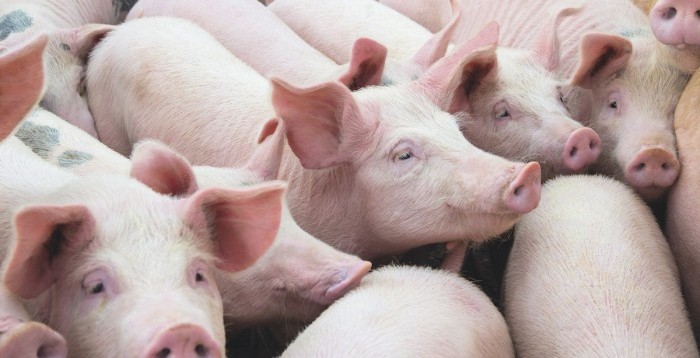German pig industry representatives have called for Government action to increase slaughter capacity to ease the growing backlog of pigs grows on farms, caused by the lethal combination of African swine fever (ASF) and COVID-19 plant restrictions.
“The situation on the pig and piglet market is getting worse,” industry organisation ISN reports. “The still limited slaughtering and cutting capacities mean that the backlog of pigs ready for slaughter continues to grow.”
ISN said piglet producers and fatteners alike are in ‘dire straits’. In addition to the ‘ruinous price’ situation – with finishing prices falling from €1.47 to €1.27 overnight but stabilising since – they are struggling to cope with the backlog of animals.
“The ISN calls on politicians and, in particular, the downstream authorities to enable the expansion of the slaughtering and, above all, cutting capacities, wherever possible, in order to prevent the dramatic situation from worsening further and a heart attack in the supply chain. This now requires a quick, decisive and coordinated package of measures on the part of the authorities,” the organisation said.
ISN managing director Dr. Torsten Staack said the combination of ASF and COVID-19 pis posing huge challenges for the pig market.
“The fact that both now come together makes the situation for piglet producers and fatteners equally dramatic,” he said. “The current ruinous price situation is fatal. If, in addition, piglet producers and fatteners are increasingly unable to market their animals, the current situation becomes a tangible emergency.”
With export bans in place, ISN said the situation is currently far worse than the COVID-10-related slaughterhouse closures this summer – the backlog of pigs ready for slaughter that had built up still not been resolved and cutting capacities still reduced at most slaughterhouses due to COVID-19 measures.
For weeks, slaughterings have ‘stagnated at around 850,000 to 870,000 pigs per week, a shortage of around 50,000 slaughterings per week. “A lot more is needed to clear the traffic jam,” market expert Matthias Quaing said.
This ‘traffic jam’ at the slaughter pig market is having a knock-on effect on sales of piglets, he added.
“The train is rolling and cannot be stopped from now on. Piglets will continue to be born and grow,” he said, explaining that full fattening pens were blocking the piglets from being housed.
ISN said measures to increase slaughtering and cutting capacity are needed, with limits currently ‘tightly set’ by the Corona requirements. Measures could include altering slaughter times and slaughter caps, with slaughterings permitted on Sundays and public holidays as it was in pre-COVID-19 times.
“Pig farmers are currently experiencing an absolute emergency, which we have been warning of in countless rounds at all levels with ministries, authorities, business representatives etc for weeks and months,” Mr Staack said.
“This emergency situation requires resolute action and special measures on all sides, as we have repeatedly called for. Everything must be done to ensure that there is no infarction in the supply chain. There must be no prohibitions on thinking.
“We have to clear the traffic jam. To do this, we need more slaughtering and, above all, cutting capacities – of course, while observing the Corona precautionary measures. The fact that the slaughtering companies in North Rhine-Westphalia are now allowed by the authorities to slaughter on October 3 is a good and important signal.
“But that alone is by far not enough. In order to really relieve the pressure on the market, all authorities at federal, state and district level must work together – and above all across the individual specialist areas and departments.”




